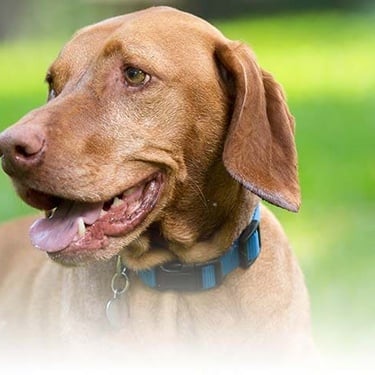
-
Find the right food for your petTake this quiz to see which food may be the best for your furry friend.Find the right food for your petTake this quiz to see which food may be the best for your furry friend.Health CategoryFeatured products
 Adult Oral Care Small & Mini Chicken, Rice & Barley Recipe Dog Food
Adult Oral Care Small & Mini Chicken, Rice & Barley Recipe Dog FoodClinically proven kibble technology to reduce plaque & tartar build-up, specially designed for small & mini dogs
Shop Now Adult Small Bites Chicken & Barley Recipe Dog Food
Adult Small Bites Chicken & Barley Recipe Dog FoodSupports lean muscle for dogs who prefer smaller kibble
Shop Now Adult 7+ Small Bites Chicken Meal, Barley & Rice Recipe Dog Food
Adult 7+ Small Bites Chicken Meal, Barley & Rice Recipe Dog FoodSupports energy level and beautiful coat in mature dogs who prefer smaller kibble
Shop NowFeatured products Adult 7+ Tender Tuna Dinner Cat Food
Adult 7+ Tender Tuna Dinner Cat FoodWith delicious chunks in a decadent gravy
Shop Now Sensitive Stomach & Skin Chicken & Beef Dinner
Sensitive Stomach & Skin Chicken & Beef DinnerGourmet daily nutrition, carefully made. Tasty chunks with chicken & beef in a decadent gravy. Supports digestive health, nourishes skin and promotes a lustrous fur.
Shop Now Adult Chicken & Spinach Casserole Cat Food
Adult Chicken & Spinach Casserole Cat FoodWith delicious chunks in a decadent gravy
Shop Now -
DogCat
- Cat Tips & Articles
-
Health Category
- Weight
- Skin & Food Sensitivities
- Urinary
- Digestive
- Kidney
- Dental
- Serious Illness
-
Life Stage
- Kitten Nutrition
- Adult Nutrition
Featured articles Water
WaterWater is the most important nutrient of all and essential for life. Animals can lose almost all their fat and half their protein and still survive, but if they lose 15% of their water, it will mean death.
Read More Pet Food Storage Tips
Pet Food Storage TipsWhere you store your cat and dog food can make a big difference in the quality and freshness once it is opened. Here are some common questions and recommendations for optimal storage for all of Hill’s dry and canned cat and dog food.
Read MoreHill's Australian Bushfire EffortsRead More -


Weight Management in Dogs
Did you know that obesity affects more than 50 percent of America's pet population? If your pooch is overweight, she can develop all kinds of health problems, such as painful arthritis, heart disease, breathing difficulty, diabetes and even bladder cancer. For your dog, the excess weight and the resulting health problems can mean less play time and depression.
How can you tell if your dog is overweight? First, your veterinarian will weigh your dog at her regular check-ups. Between check-ups, place your hands on her side - are her ribs hard to feel or even impossible to feel? If so, she is likely overweight.
Here are some easily identifiable causes of weight gain in dogs:
Overfeeding - Dogs with unlimited access to food understandably eat more than they need
Overeating - Many commercial foods are loaded with salt and fat. This improves taste, which means your dog will want to gorge
Feeding habits - Feeding table scraps and "people food" can lead to obesity


Tasty Tips
Lack of exercise - Too much food and too little exercise produces a typical result: Obesity
Age - Older, less active dogs are prone to weight gain
Gender - Female dogs are more likely to become overweight
Neutering - Spayed or neutered dogs are twice as likely to become obese due to a more sedentary lifestyle. (There are many important health reasons to have your pet spayed or neutered - just be careful to monitor your dog's weight.)
Food plays a very important role in treating an overweight dog. Along with exercise, a low-fat and low-calorie food is essential in helping your dog lose weight and stay fit. Fiber is also a key ingredient since it helps your dog eat less while keeping her full. Once your dog has been overweight, she may be prone to weight gain and should have an ongoing weight-management plan based on good nutrition, exercise and regular check-ups and weigh-ins. For an accurate diagnosis and treatment options, always consult your veterinarian.


One of our staff authors prepared this article for you
Related products

Supports lean muscle for dogs who prefer smaller kibble

Clinically proven kibble technology to reduce plaque & tartar build-up, specially designed for small & mini dogs

Supports energy level and beautiful coat in mature dogs who prefer smaller kibble

Supports healthy joints, lean muscle, and beautiful coat for large breed dogs
Related articles

Learn how today's wet dog food blends have gotten a face lift, and how you'll provide your dog the nutrition he needs in the form he loves.

Extra pounds can cause problems for your dog's overall health. Learn the signs that your dog might be overweight, and what you can do to manage its weight.

Selecting the right food for your puppy is a key to quality nutrition and a long, healthy life., Learn more about how to select the right puppy food.

As small and toy breed dogs age, their nutritional needs change.

Put your dog on a diet without them knowing
Our low calorie formula helps you control your dog's weight. It's packed with high-quality protein for building lean muscles, and made with purposeful ingredients for a flavorful, nutritious meal. Clinically proven antioxidants, Vitamin C+E, help promote a healthy immune system.
Put your dog on a diet without them knowing
Our low calorie formula helps you control your dog's weight. It's packed with high-quality protein for building lean muscles, and made with purposeful ingredients for a flavorful, nutritious meal. Clinically proven antioxidants, Vitamin C+E, help promote a healthy immune system.

